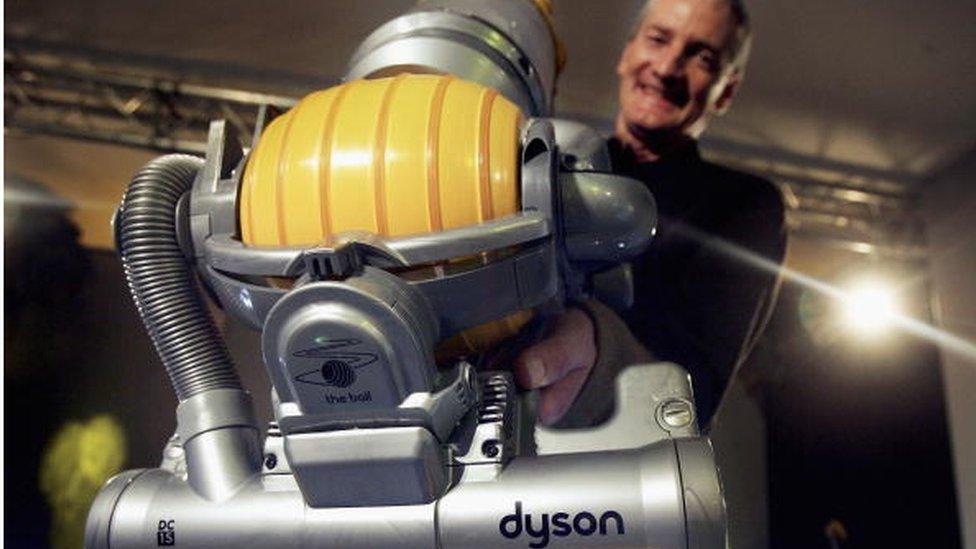Dyson wins ruling over vacuum cleaner tests
- Published

Dyson has won a battle in the European courts over the way vacuum cleaners' energy efficiency is labelled.
The UK household appliance maker said the tests behind the efficiency ratings favoured rivals' models and failed to reflect real life conditions of use.
The EU's General Court found in Dyson's favour after four years of legal wrangling over the issue.
The company, founded by Sir James Dyson, said the ruling was "a win for consumers".
The UK firm said the lab tests had "flagrantly discriminated" against its own patented cyclone technology by testing vacuum cleaners when they were empty of dust.
Dyson, which is best known for its bagless cleaners, argued that models using bags lost suction and became less energy efficient as they filled, making lab tests which only measured the performance of empty cleaners inaccurate.
The company argued the tests misled consumers over the real environmental impact of the machine they were buying.
Dyson said some manufacturers had "actively exploited the regulation by using low motor power when in the test state, but then using technology to increase motor power automatically when the machine fills with dust - thus appearing more efficient".
The ruling in the General Court annuls the current labelling regulations, although they will remain in place for 10 weeks to allow time for appeal.
Analysis
By Theo Leggett, ǵüµÇ¨û§ business correspondent
Dyson has compared the situation with vacuum cleaners to "dieselgate" - the scandal which saw Volkswagen engineers deliberately drive a bus through exhaust emissions legislation. However, it's fair to say that's overplaying things a bit.
Certainly the court has concluded that the EU legislation was faulty - and the beneficiaries of that defective legislation were rivals such as Siemens or Bosch. Dyson insists some manufacturers have been gaming the system, exploiting weaknesses in the legislation. It even refers to "defeat software" - echoing the "defeat devices" used by Volkswagen.
But, here's the point. Dyson seems to be suggesting that the Commission itself discriminated in favour of continental manufacturers and against its own products - while the manufacturers themselves were operating within the letter, if not the spirit, of the law. It's the bureaucrats, not the companies themselves, who stand accused.
Volkswagen's engineers, in the US at least, knew full well what they were doing was downright illegal. The consequences of their actions were that a great many drivers were unknowingly using vehicles that produced far greater quantities of harmful gases than they thought, and sabotaging efforts to reduce air pollution.
- Published23 October 2018
- Published30 August 2018
- Published11 May 2017
- Published11 April 2018
- Published1 March 2018